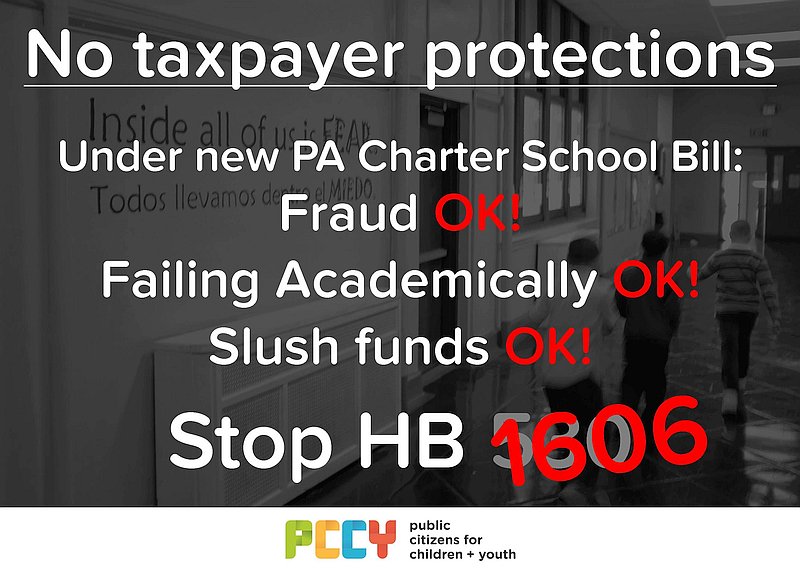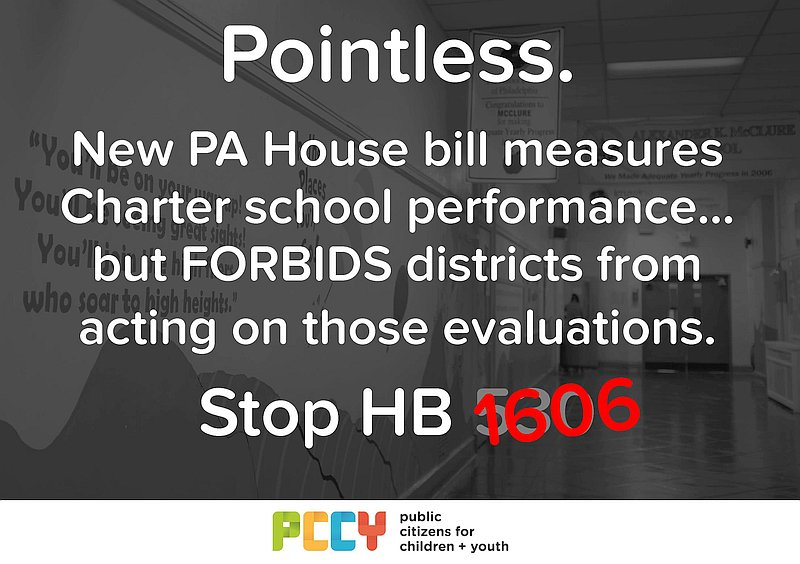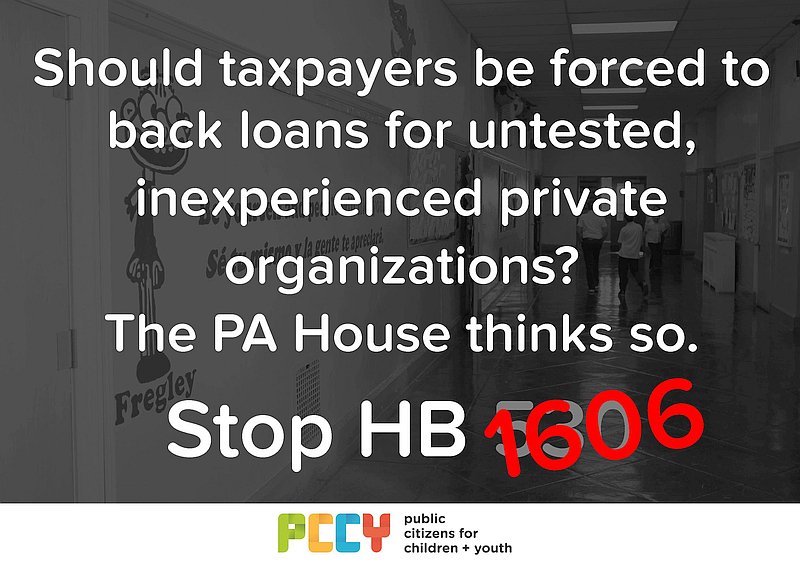20 reasons to vote no on Pa. HB 530 charter school reform

Pennsylvania taxpayers now spend more than $1.4 billion on charter and cyber charter schools annually, in addition to funding the state’s traditional public schools. The current “rob from public school Peter to pay charter school Paul” system drains money from traditional public schools, forcing districts to cut programs and services for the students who remain. In 2011, the charter reimbursement line was eliminated from the state budget. It provided state funding to districts for the costs and financial exposure resulting from the addition of charter schools.
Legislators are now considering House Bill 530, which would bring much-needed reform to the charter school law that was written in 1997. The bill has several helpful provisions, but the harm that it does far outweighs the good. Here are 20 reasons that the legislature should vote against this measure.
- #HB530 does not provide significant accountability to taxpayers for payments made to charter school entities.
- #HB530 would create a Charter School Funding Commission that would consider establishing an independent state-level board to authorize charter school entities, bypassing any local decision-making by school boards and their communities.
- #HB530 further limits the ability of communities to negotiate the role of charters locally. The decisions about how, when, and where to expand them should be made by those who have the information and expertise to do so in ways that improve education.
- #HB530 is an entirely unwarranted intervention in the local governance of school districts. It would remove local control of tax dollars from Pennsylvania taxpayers and their elected school directors.
- #HB530 sets no limits to money that charters can drain from local school districts, eliminating districts' capability to plan and budget.
- #HB530 is a vehicle for the Pennsylvania legislature to have local taxpayers pay for unlimited charter expansion.
- #HB530 would let charter operators expand and add grades without any local input or authorization, regardless of performance.
- #HB530 would let charters expand by enrolling students from outside of the district in which it is located.
- #HB530 does nothing to address the enormous drain of tax dollars from all 500 school districts for chronically underperforming cyber schools that were authorized by the state. Nearly every national study of virtual schools' performance has found it lacking, including studies by “pro school choice” organizations.
- #HB530 does not address the poor performance of cyber charters by creating a task force or a commission to study student outcomes in these schools. Not one Pennsylvania cyber charter has achieved a passing score of 70 on the state’s School Performance Profile in the three years that it has been in use. Most cybers never made Adequate Yearly Progress under all the years that No Child Left Behind was in effect.
- #HB530 sets no annual limits on the amount of taxpayer dollars that can be spent on charter advertising.
- #HB530 proposes a new 14-member Charter School Funding Advisory Commission without including a single one of the state’s 4,500 locally elected school directors who are responsible for raising revenue in their school districts.
- Even though more than 90 percent of Pennsylvania kids are educated in district schools, #HB530 stacks the Charter Appeals Board in favor of charter schools.
- If charter schools are public schools, why should they have different methods of evaluating the schools and their teachers, as proposed in #HB530?
- #HB530 requires use of a performance matrix that makes it impossible to compare charters’ performance with their sending school districts’ performance.
- #HB530 creates a separate evaluation system for charter school teachers instead of using the existing state system.
- #HB530 would let charters keep your tax dollars to accumulate fund balances that are 4 percent to 8 percent higher than their respective school districts.
- All of the accountability provisions in #HB530 can be easily bypassed if a charter school contracts with a management company to operate the charter. Chester Community Charter School, the state’s largest charter, is the poster child for this with Charter School Management Inc., founded and run by Republican powerbroker Vahan Gureghian.
- If a charter is run by a management company, the public has zero information on how their tax dollars are spent. #HB530 does nothing to require any fiscal transparency or reporting from charter management companies.
- #HB530 would divert an additional $25 million in tax money to unaccountable private and religious schools through the Educational Improvement Tax Credit program.
Lawrence A. Feinberg is the founder and co-chair of the Keystone State Education Coalition, a non-partisan, grassroots public education advocacy group. He is currently serving his 17th year as a school director in Haverford Township.



